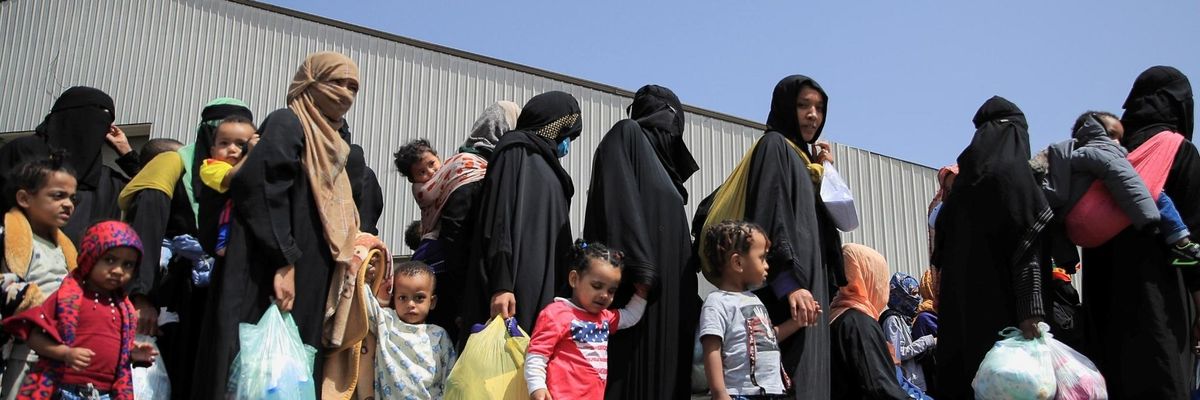Saudi border guards have killed hundreds of asylum seekers at the country’s border with Yemen using bombs and live fire, according to an explosive new report from Human Rights Watch, which says the attacks would amount to a “crime against humanity” if they were part of official regime policy.
Survivors of the alleged attacks described their experience in harrowing terms. One migrant said only seven of the 150 people they crossed with survived shelling with heavy weapons. “There were remains of people everywhere, scattered everywhere,” they told Human Rights Watch.
“They were firing big rocket launchers at us,” remembered another survivor. “It was like a bomb. From the 250 people [in the group crossing], 150 died.”
Others accused border guards of firing on migrants, most of whom were fleeing unrest in Ethiopia, at close range. The report strongly suggests that the number of migrants killed since last year alone may reach into the thousands.
The accusations come at a particularly sensitive time for the Saudi monarchy, which has embarked on a massive public relations push in order to burnish a global image tarnished by alleged war crimes in Yemen and the grisly 2018 murder of Saudi journalist and Washington Post opinion writer Jamal Khashoggi.
“Spending billions buying up professional golf, football clubs, and major entertainment events to improve the Saudi image should not deflect attention from these horrendous crimes,” said Nadia Hardman of Human Rights Watch in a statement.
The report also raises uncomfortable questions for the Biden administration, which is considering giving “security guarantees” to Saudi Arabia in order to entice its leaders to normalize relations with Israel. Among the proposals on the table is a mutual defense treaty that would obligate U.S. troops to defend Saudi Arabia in case of attack. American officials are also mulling whether to help Riyadh develop a civilian nuclear program, a move that many experts worry could be a first step toward a Saudi nuclear weapons push.
The White House, aware that any new treaty would face an uphill battle in Congress, has already started briefing Democratic leaders about the talks in order to build support, according to the New York Times.
President Joe Biden, who once said he hoped to turn Riyadh into a “pariah,” may meet with de facto Saudi leader Muhammad bin Salman, or MBS, at next month’s G-20 Summit in New Delhi, India. The main topic of discussion at the proposed meeting would be a potential “mega deal” in which the United States would make a series of concessions to Saudi Arabia in order to encourage it to normalize ties with Israel, according to Axios. It remains unclear what the U.S. would get from the agreement.
Some analysts argue the Human Rights Watch report should serve as a reminder that working with the Saudi government often entails moral pitfalls.
“At a minimum this should trigger a [State Department] investigation into whether US law has been violated by US-trained Saudi forces or with US arms,” said Dylan Williams of J Street, a progressive pro-Israel advocacy group. “It’s also a horrific reminder of why the US should not bind itself [to] the Saudi autocracy with major new military commitments or arms sales.”
Sarah Leah Whitson, the executive director of Democracy for the Arab World Now, argued that Saudi actions on the border are a direct result of Washington’s continued support for Riyadh. “Saudi Arabia feels empowered to act as recklessly, inhumanely and unlawfully as it wants — including lobbing mortar attacks on desperate migrants seeking safety — because it knows it has U.S. support,” Whitson told RS.
“We can expect that its reckless belligerence will only increase with the added security of a U.S. security guarantee,” she added. “The Biden administration should take responsibility for its role in knowingly aiding and abetting Saudi security forces.”














